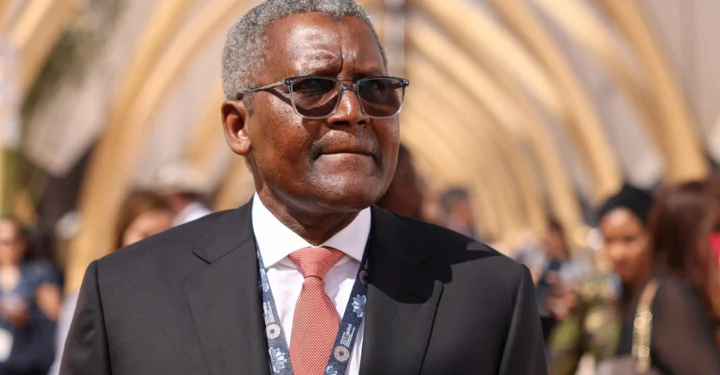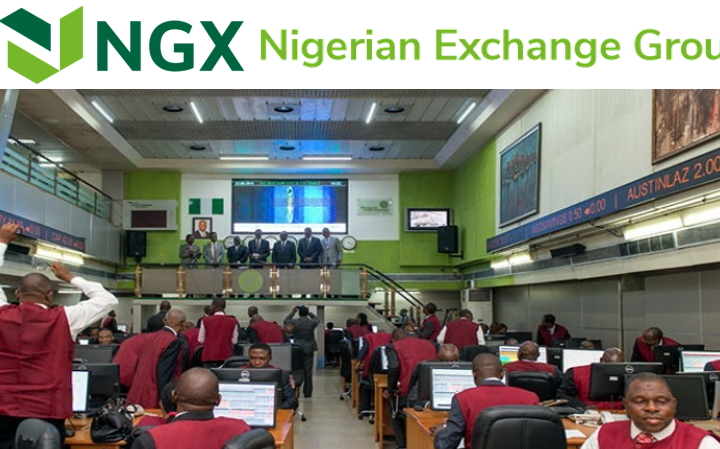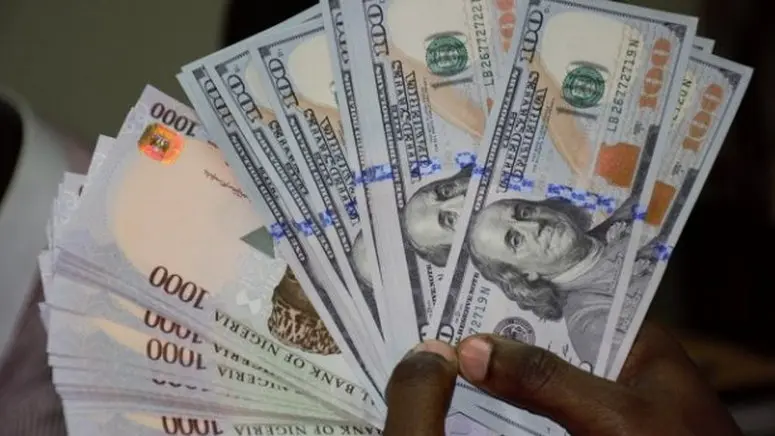Amid subsisting controversy on new naira notes, Prime Business Africa (PBA), brings you the latest news on naira redesign policy of the Central Bank of Nigeria (CBN) for today.
GTBank, Others Limit Cash Withdrawal To N10,000
Join our WhatsApp ChannelThe Central Bank of Nigeria (CBN) has fully complied with the Supreme Court ruling ordering it to restore old naira notes to circulation but Guaranty Trust Bank (GTBank) and other banks have limited over-the-counter withdrawals to just N10,000.
Our correspondent, who visited many banks in Lagos today to verify the level of compliance with the CBN-mandated acceptance and disbursement, could not access the banking halls in many locations as a result of long queues inside and outside the banks.
Some of the banks also pegged withdrawals at N5,000 and did not have new notes.
READ ALSO: Why Naira Scarcity, Queues – CBN’s Emefiele Briefs Diplomatic Community
At GTBank on Airport Road, bank officials insisted that customers could not withdraw above N10,000, saying they were acting on the instruction of the CBN. “The limit is N10,000 and its the limit for daily withdrawal, according to the CBN,” one of the bank staff said.
She also said that customers could not deposit the old notes without registering the notes on the CBN portal.
This suggests that although the CBN has complied with the directive of the Supreme Court by ordering banks to accept and issue old N500 and N1000 notes, it has also tightened its noose on those who might have planned to abuse the Naira redesign policy.
Customers at GTBank were seen making withdrawal of old notes on Wednesday. “We do not have the new notes, a female banker said when asked why the branch was not giving out new Naira notes.
In a related development, the apex bank released new measures to check abuse by POS operators with regards to mobile banking. It said agents to go beyond specified threshold in rendering their services. In an Exposure Draft of the Regulatory Framework for Agent Banking in Nigeria, the CBN barred agents from using merchants’ Point of Sale (PoS) terminals.
According to the central bank, agents should avoid using the wrong option for transactions such as the use of the purchase option on PoS Terminals for cash-in and cash-out transactions.
Also, the financial regulator restricted the PoS agents from performing foreign currency transactions, opening accounts or disbursing loans to their customers.
READ ALSO: Signature Bank Falls: U.S Records Third Largest Bank Failure In History
“An agent shall not accept deposit or allow withdrawal above an amount which shall be prescribed, from time to time by the bank.
“Use the wrong option for transactions e.g agents shall not use the purchase option PoS Terminals for cash in and cash out transactions,” the circular signed by Musa I. Jimoh, Director, Payments System Management Department reads.
Also listed among services mobile banking agents are barred from offering are “Open accounts, grant loans or carry out any appraisal function for purposes of opening an account or granting of a loan or any other facility except as may be permitted by any other written law to which the agent is subject.
“Undertake cheque deposit and encashment of cheques. Accept deposit or allow withdrawal above an amount which shall be prescribed, from time to time, by the bank.
“The agent bank employee also should not be a staff of financial institution and also provide cash advances,” the central bank stated.
The CBN adopted the use of PoS agents to move banking closer to underserved areas across Nigeria and deepen financial inclusion.
PoS agents have saturated the country, with many Nigerians now patronising them for cash withdrawals, cash transfers and certain bill payments, instead of visiting commercial banks.
This prompted the need to reiterate the activities of the mobile banking agents, “This has necessitated the review of agent banking regulations to streamline activities in agent banking while ensuring that appropriate risk mitigation measures are taken by stakeholders”, it said.
Moghalu Carpets CBN, Reveals Problems With Emefiele’s Naira Policy
Former Deputy Governor, Central Bank of Nigeria (CBN), Kingsley Moghalu, has condemned the handling of the Naira redesign policy under Godwin Emefiele.
Moghalu said months after the CBN set out to implement the Naira redesign policy, Nigerians are still suffering from the policy.
He said in a statement that there was confusion regarding the purpose of the Naira redesign policy, from economic reasons to political, resulting in the failure of the CBN policy.
“First, the 90-deadline, which I warned was too short to be effectively executed. Second, the timing, so close to the elections. But, as later became clear, there was a haphazard and incoherent communication of the purposes of the policy.
“In one breath, it was said to be to reduce the money supply and help tame inflation (after the Bank had created and lent N23 trillion to the Federal Government, illegally because that was way beyond approved limits under the CBN Act of 2007).
“Next, it was promoted as a national security measure to halt kidnapping, Naira hoarding and sundry crimes. Then, next, it became about “free and fair elections “ to stop vote-buying,” he wrote.
Recall that the Supreme Court forced the central bank to suspend the Naira redesign policy implementation on Friday, 3 March 2023, when it delivered a judgement that the policy was a breach of the 1999 constitution.
Prime Business Africa also reported that the Supreme Court extended the legality of the old Naira N500 and N1,000 notes till 31 December 2023, against the 10 February 2023 deadline of the CBN to phase out the currencies for the redesigned notes.
Further addressing the crisis caused by the Naira redesign policy, Moghalu said: “Expectedly, politicians who felt the policy targeted them complained loudly and wanted the deadline extended, while those who believed it helped their own political agendas hailed the tight and impractical deadline and did not want it moved.”
Part of his statement reads: “Today, whatever may have been the benefits of the naira redesign policy have been cancelled out by the economic and social gridlock it has created.
“We are still suffering from it, after the “almighty” presidential election has come and gone. There are several lessons here. One such lesson is the importance of effective risk management that was evidently absent in the conception and execution of the policy.”
Black Market’s Dollar Rate Now N290 Above Official Market
The Naira to Dollar exchange rate in the official market depreciated on Tuesday, 14 March 2023, as the Nigerian currency regains some value lost to the United States legal tender in the last couple of days.
Prime Business Africa gathered from FMDQ Exchange data that the Naira appreciated in value by N0.25 kobo or 0.05 per cent during trading.
At the end of Tuesday’s session, the Naira and the Dollar exchanged for N461.42/$1. This is below the exchange rate of N461.67/$1 reported on Monday, 13 March 2023.
This publication learnt that at some point during forex trading in the official market, the exchange rate rose as high as N462.18 to one Dollar. The lowest rate for the day was N446/$1 before closing at N461.42 for one Dollar.
The exchange rate fell to N461.42 as investors and exporters traded $113.44 million worth of foreign exchange in the official market.
FMDQ Exchange reported that the value of foreign exchange traded by investors and exporters was 46.11 per cent or $35.80 million above the $77.64 million they exchanged during trading on Monday.
The official market has been said to be unrealistic due to the influence of the Central Bank of Nigeria (CBN) in the movement of the exchange rate compared to that of the black market where market forces determine the movement of the forex rate.
In the black market, the rate is N290 more than the price of the Dollar or worth of the Naira in the official window, where the Dollar rate is N752/$1 as of Wednesday, 15 March 2023.
Due to the absence of the central bank’s control in the Bureau De Change window of the black market, the sentiment among many is that it reflects reality more than that of the Investors and Exporters window.
This is why there have been debates that the Naira is overvalued in the official market, and to ensure it meets reality, the World Bank and the International Monetary Fund (IMF) have urged the CBN to reduce its intervention in the official market whenever forex shortage hots.
Currently, both the official and black markets are struggling with forex shortage, however, the latter gets forex support from the CBN, while the former has not been receiving aid from the financial regulator since 2021.
Inflation Hits 21.91%, As Nigerians Pay More For Bread, Yam, Others
The National Bureau of Statistics has revealed that Nigeria’s headline inflation hit 21.91 per cent in February 2023 on the back of a hike in Yam, Bread and Meat prices.
According to the Consumer Index Price (CPI) for February 2023, released on Wednesday, 15 March 2023, Nigeria’s inflation soared to 21.91 per cent in February, up from the 21.82 per cent reported in January this year, indicating an increase of 0.09 per cent points.
“In February 2023, the headline inflation rate rose to 21.91% compared to January 2023 headline inflation rate which was 21.82%.
“Looking at the trend, the February 2023 inflation rate showed an increase of 0.09% points when compared to January 2023 headline inflation rate.
“Similarly, on a year-on-year basis, the headline inflation rate was 6.21% points higher compared to the rate recorded in February 2022, which was 15.70%.
“This shows that the headline inflation rate (year-on-year basis) increased in February 2023 when compared to the same month in the preceding year (i.e., February 2022),” NBS said.
It was gathered that Bread and Cereal, Actual and Imputed Rent, Potatoes, Yam and Other Tubers, Vegetable and Meat were drivers of the inflation rate for last month.
In the month in review, the food inflation rate was 24.35 per cent on a year-on-year basis, which was
7.24 per cent points higher compared to the 17.11 per cent reported in February 2022.
“The contributions of items on a class basis to the increase in the headline index are presented, thus: Bread and Cereal (21.67%), Actual and Imputed Rent (7.74%), Potatoes, Yam and Other Tubers (6.06%), Vegetable (5.44%) and Meat (4.78%).
“On a month-on-month basis, the percentage change in the All-Items Index in February 2023 was 1.71%, which was 0.16% points lower than the rate recorded in January 2023 (1.87%). This means that in February 2023, on average, the general price level was 0.16% lower relative to January 2023,” NBS said.
Zenith Bank’s DMD Quits On New CBN Directive
The Deputy Managing Director (DMD) of Zenith Bank, Adaora Umeoji, has quit her role in the financial institution due to the new tenure announced by the Central Bank of Nigeria (CBN) for bank leadership.
Recall that the central bank created a new timeframe for Deputy Managing Directors (DMD), Executive Directors (ED) and Managing Directors (MD) on February 24, 2023.
The financial regulator, in a circular signed by the Director of the Financial Policy and Regulation Department at the CBN, Chibuzo Efobi, said the DMD, ED and MD have a maximum tenure of 10 years based on the terms of their engagement approved by the Board of Directors of banks.
But the Godwin Emefiele-led central bank stipulated a cumulative tenure of 12 years for a Deputy Managing Director or Executive Director that becomes the Managing Director or Chief Executive Officer of a bank or any other DMB before the end of their maximum tenure.
This forced Umeoji to retire from the board which she joined in 2012 as Executive Director before she attained the position of Deputy Managing Director in 2016.
Zenith Bank linked her exit from its board to the central bank’s new tenure directive in a document dated 3rd March 2023 and signed by the company’s secretary, Michael Otu.
“We write to notify the Nigerian Exchange Limited and the investing public of the retirement of Dame (Dr) Adaora Umeoji from the Board of Zenith Bank Plc with effect from February 24, 2023.
“This follows the expiration of her tenure of office as Deputy Managing Director in line with the Central Bank of Nigeria (CBN) circular No.FPR/DIR/PUB/CIR/001/070 dated February 24, 2023,” Zenith Bank wrote in the document.
Prior to her exit, Umeoji occupied several positions, some of which are; Head, Marketing Group, Maitama branch of the Bank, Deputy Zonal Head, Abuja Zone and Executive Director in charge of Abuja and Middle Belt Zones of the Bank.


















Ok